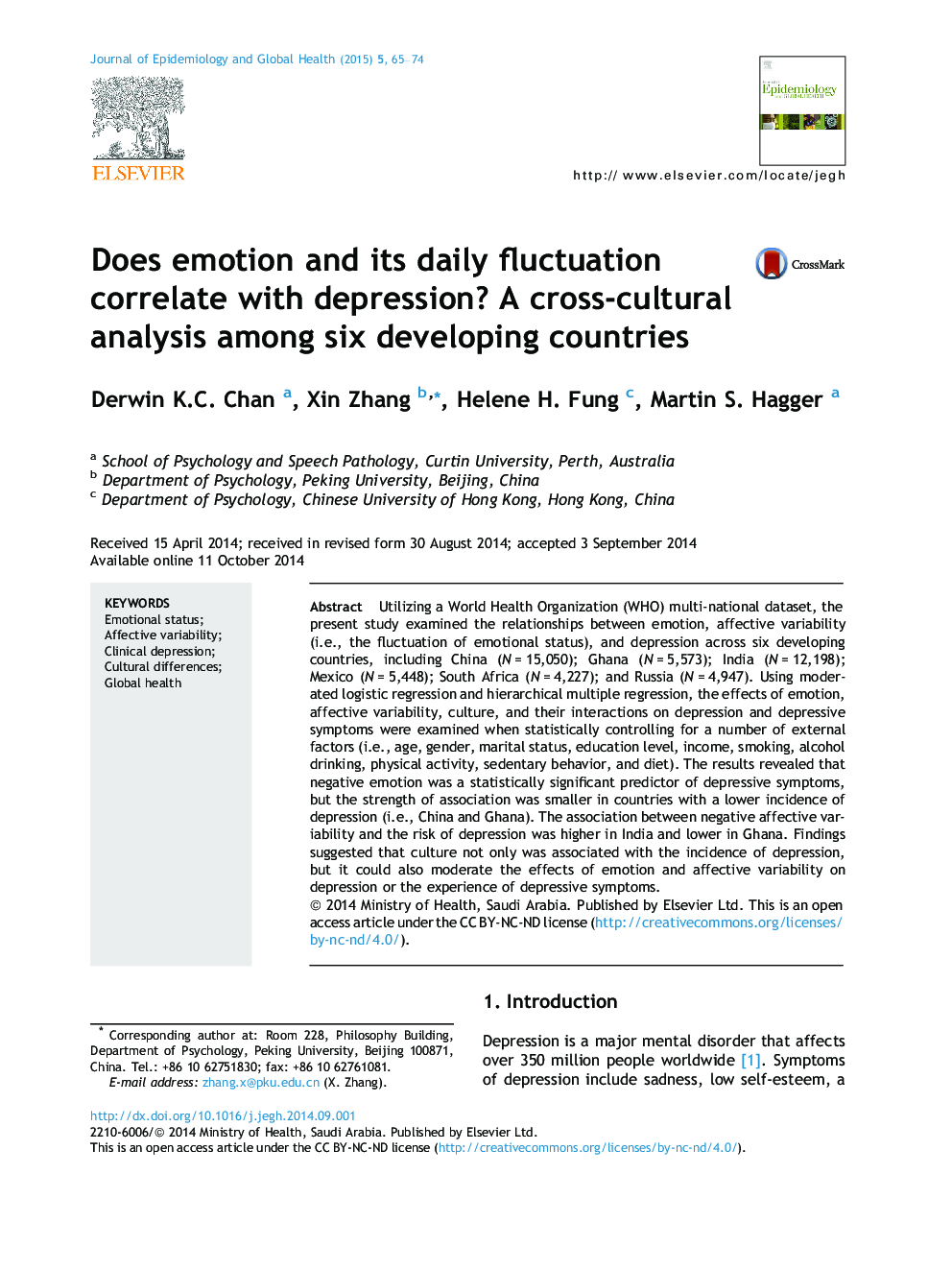| Article ID | Journal | Published Year | Pages | File Type |
|---|---|---|---|---|
| 3327458 | Journal of Epidemiology and Global Health | 2015 | 10 Pages |
Utilizing a World Health Organization (WHO) multi-national dataset, the present study examined the relationships between emotion, affective variability (i.e., the fluctuation of emotional status), and depression across six developing countries, including China (N = 15,050); Ghana (N = 5,573); India (N = 12,198); Mexico (N = 5,448); South Africa (N = 4,227); and Russia (N = 4,947). Using moderated logistic regression and hierarchical multiple regression, the effects of emotion, affective variability, culture, and their interactions on depression and depressive symptoms were examined when statistically controlling for a number of external factors (i.e., age, gender, marital status, education level, income, smoking, alcohol drinking, physical activity, sedentary behavior, and diet). The results revealed that negative emotion was a statistically significant predictor of depressive symptoms, but the strength of association was smaller in countries with a lower incidence of depression (i.e., China and Ghana). The association between negative affective variability and the risk of depression was higher in India and lower in Ghana. Findings suggested that culture not only was associated with the incidence of depression, but it could also moderate the effects of emotion and affective variability on depression or the experience of depressive symptoms.
